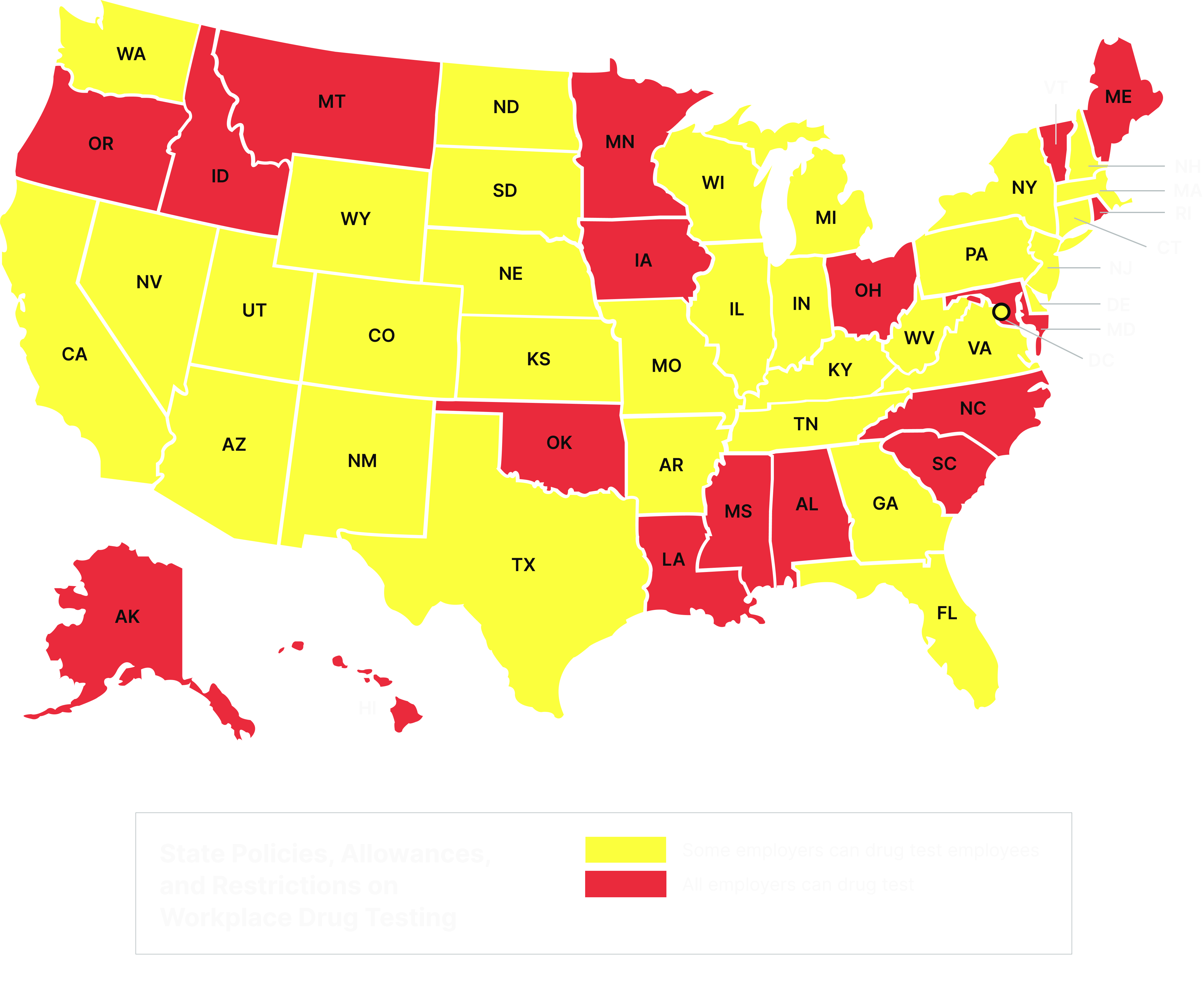
When Ronald Reagan declared his war on drugs in 1986, he announced six initiatives his administration would undertake, including ensuring “a drug-free workplace at all levels of government and in the private sector.”
The idea that people who use drugs cannot be good employees was planted at the very inception of the modern drug war despite any evidence connecting drug use to poor job performance. And that idea persists, impacting employment policies in profound ways.
For decades, the drug war has inflitrated workplace policies with drug testing and drug record discrimination. These exclusionary policies have robbed people from one of the primary and critical factors associated with a reduction in drug use and potential negative consequences of drug use — access to stable employment.
The drug war has its roots spreading throughout our lives, sowing economic disaster for whole communities denied gainful employment and choking off the livelihoods of millions of families. It’s still spreading — and we can do something about it.
The Roots of the Drug War Go Everywhere
To get and keep a job, millions of people in the U.S. are forced to pee in a cup for drug testing. It’s invasive, humiliating, and often people have no notice of the test and no option to decline. Pre-emptive drug testing as a grounds for employment has become standard practice, and the testing industry has made millions of dollars in the process. There is no evidence that testing potential and current employees increases workplace productivity or that the practice predicts on-the-job impairment. The drug war has tricked us into believing that drug testing deters people from using drugs. It doesn’t.
There is no evidence that testing potential and current employees increases workplace productivity
Mass incarceration, fueled in part by the war on drugs, has produced profound employment discrimination. Over 70 million people — or as many as one in five people in the U.S. — have some type of criminal record, and drug offenses make up the largest percentage of arrests. The very presence of a drug arrest or charge can be an automatic barrier to getting a job and can also automatically disqualify people from getting a professional license for their trade, like trucking or barbering. The disproportionate impact of drug war criminalization and related policies and practices on people and communities of color mean these communities are also most harmed by economic and employment disenfranchisement as a result of the war on drugs.
The very presence of a drug arrest or charge can be an automatic barrier to getting a job
People with substance use disorder (SUD) are parents, children, siblings, and friends and yet the war on drugs, through the tool of criminalization, turns people who use drugs into social outcasts deserving of discrimination. This vilification and stigmatization led to the exclusion of certain people with SUDs from protection under the historic employment law, the Americans With Disabilities Act (ADA), enacted in 1990. It’s hard to recover without services, and hard to get and keep a job if discrimination against people with substance use disorders is allowed.
It’s hard to recover without services
Dig deeper to see how these systems are connected.
Jasmin Reggler was proud of her new job as legislative aide to a Rochester City Council member, but she was fired after just one month when her drug test came back positive for marijuana. Jasmin was not willing to accept the loss of her job for using marijuana on her own time, and she knew that many others had been unfairly denied employment or deterred from even applying for the same reason. She advocated for change, and as a result, legislation was introduced to repeal the city’s drug testing policy. As of May 2020, city job applicants and employees are no longer tested for marijuana. Drug testing job applicants and employees without evidence of workplace impairment is not only invasive and humiliating but cuts off paths to employment and familial stability.
Jasmin Reggler
Rochester, New YorkThe Drug War Grows Unchecked
All states and the District of Columbia allow drug testing in some job settings, and 18 states allow both public and private employers to conduct drug testing, regardless of job function.

Only 30% of employees who have been drug tested used drugs within the past month.
It’s actually a mere 10% of employees, and marijuana is the most common drug found. Despite this low percentage, drug tests have become routine. They cannot tell how much of a drug was consumed, how intoxicated the person became, whether the person has a substance use disorder, or whether drug use will impact a person’s ability to perform their work or create a safety risk.
Pull the Drug War Up by the Roots
Employment is important to individuals, communities, and the country. We should focus on giving people more opportunity, not needlessly disqualifying them from jobs based on drug tests and criminal records that are poor indicators of work performance. For people who do have substance use issues, employment is an essential, stabilizing factor and should also be an avenue for connection to services.
We Should:
We can uproot the drug war from our communities.
It Takes All Of Us
Get involved in the grassroots movement to uproot the drug war in all systems.